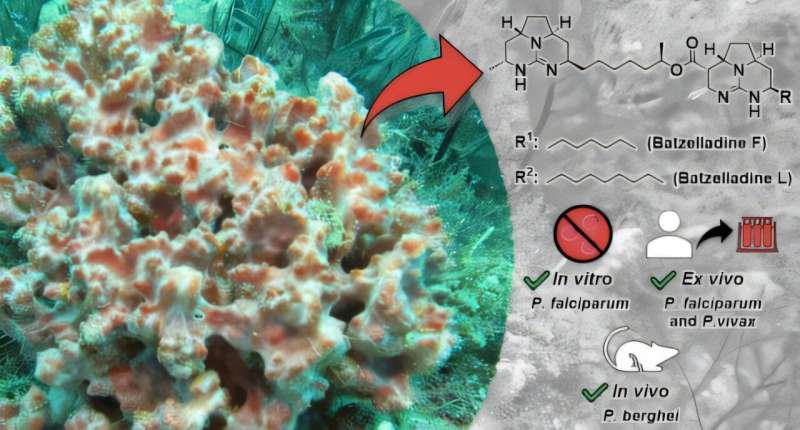Caused by protozoa and transmitted by the bites of Anopheles mosquitoes, malaria is one of the world’s most deadly infectious diseases. According to the World Health Organization (WHO), there were around 600,000 malaria-related deaths in 2023 alone, 75% of which were children under the age of five.
Two newly discovered compounds, batzelladins F and L, were found to rapidly eliminate the parasites that cause malaria, including Plasmodium falciparum, which is predominant in Africa and more lethal, and Plasmodium vivax, which is predominant in South America. The efficacy of the substances was proven through tests on blood samples from patients and infected mice.
“These are robust results that give us hope for a new treatment. Although the compounds did not completely eliminate the protozoa, they can serve as inspiration for the synthesis of new chemical structures with enhanced action,” says Rafael Guido, a professor at the University of São Paulo’s São Carlos Institute of Physics (IFSC-USP) and co-author of the study.

